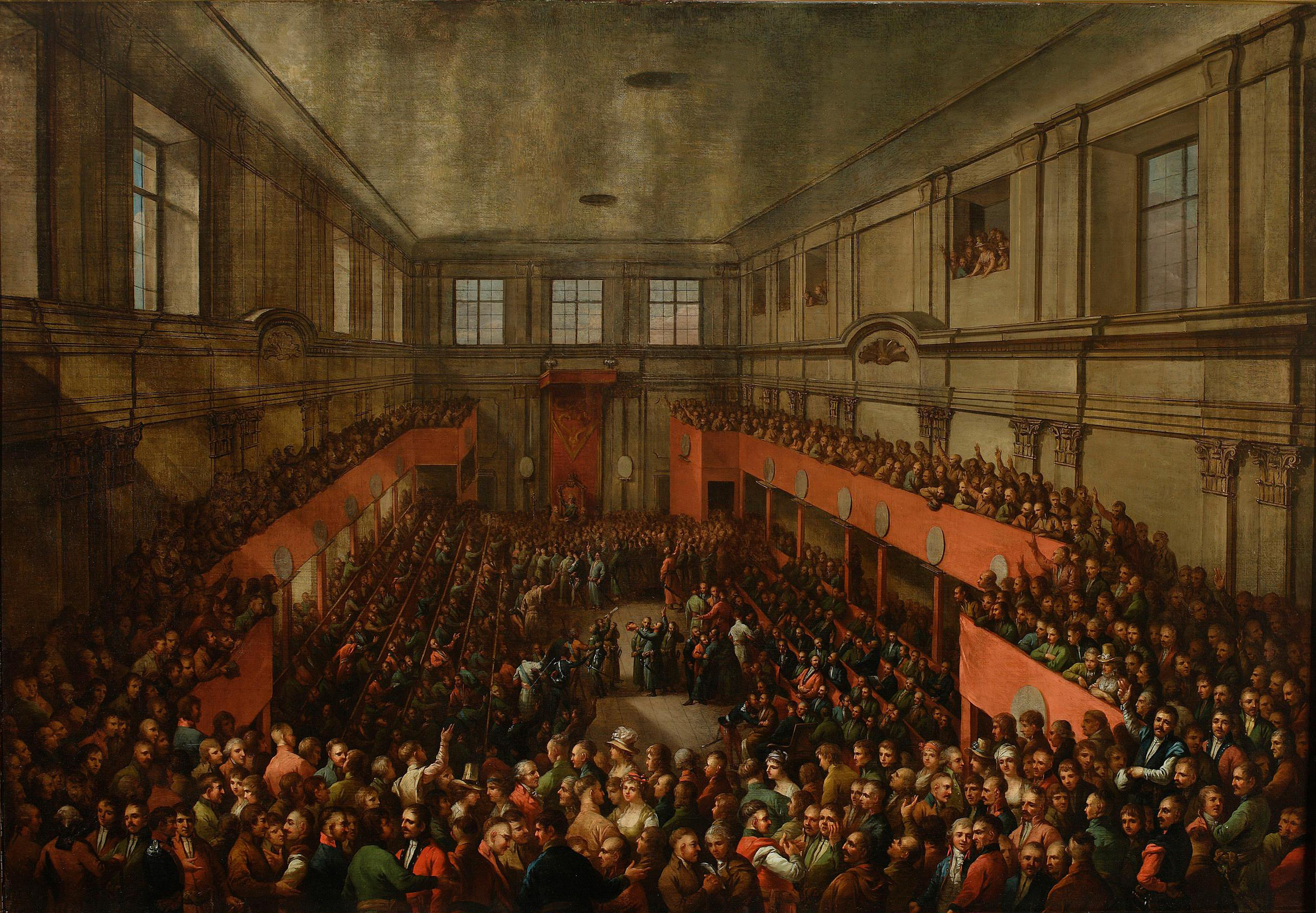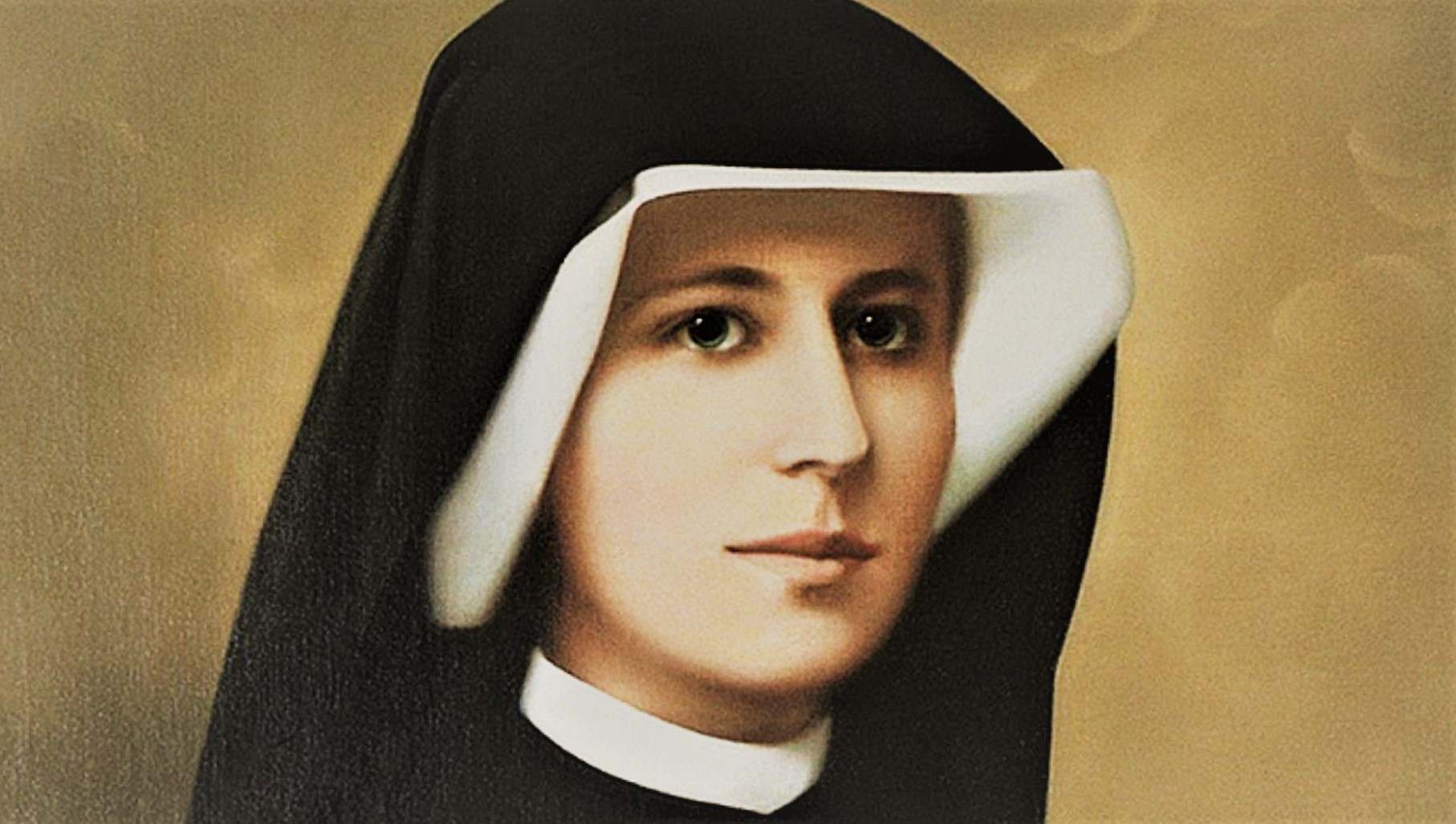The passing of the Government Act was possible because an understanding had been reached between members of the enlightened opposition and the King, Stanisław August Poniatowski.
by Piotr Ugniewski
The turning point had been a long discussion between the leader of that opposition, Ignacy Potocki, and the monarch, at the Royal Castle, on 4 December 1790. During the talk, it was agreed that the constitution would be drafted in secret, under the King’s guidance, and then presented in its entirety to parliament (the Sejm) for approval. Work on the constitution draft went on at the Castle, within a very small inner circle, whose members exchanged subsequent draft proposals among themselves. Stanisław August and Ignacy Potocki; the marshal of the crown confederation of the Sejm, Stanisław Małachowski; the influential writer and journalist, Father Hugo Kołłątaj; and the King’s confidant, parliamentarian for Kraków, Aleksander Linowski, were all part of the circle. A foreigner, the Italian Scipione Piattoli, who mediated between the King and Potocki, was also among the insiders.
The texts proposed for discussion in this make-up were initially taken down in French. It was only as work on the proposal was coming to an end that Kołłątaj prepared the final draft in Polish. That draft had been ready as early as March, and it was then that it was gradually being revealed to other parliamentarians and senators. For that reason, the proposal could not be kept entirely secret from the conservative, Old Polish opposition. Thus the presentation of the Government Act to the Sejm, which had previously been planned for 5 May, actually took place two days earlier. In order to distract the majority of the Sejm (assembled in its double make-up) from the constitutional negotiations, which went on in secret, voting was scheduled on two important and controversial bills: on 24 March, the Sejmiki [regional assemblies] law; and on 18 April, law of the cities. The presentation of the Constitution proposal had been scheduled right after Easter recess, in the hope that opposition members would not return to the capital in time. These calculations proved to be only partially correct: even so, early after the recess, more than sixty members of the opposition were present in the Sejm chamber.
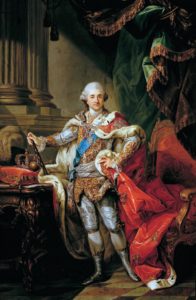
On 1 May, a public reading of the final draft took place in Pałac Radziwiłłowski (the present-day Presidential Palace on Krakowskie Przedmieście Street). The draft was read again the following evening, after which signatures began to be collected from parliamentarians and senators in favor of it. The so-called Asekuracja (ressurance) was signed by eighty-three members.
On 3 May 1791, a Tuesday, the Castle had been surrounded by the military, commanded the King’s nephew, Prince Józef Poniatowski, and by crowds of burghers. The audience, the so-called arbiters, turned out in the hall where the Constitution was being passed, in exceptionally high numbers. The schedule of the session, which began around noon, had been carefully planned in advance. The assembly began with reading out the (suitably fabricated) diplomatic dispatches, which heralded a change in the course of international relations, and stressed that this change was to the Commonwealth’s disadvantage. Parliamentarians in session were thus being presented with the conclusion that, under the circumstances, security of the state could only be granted if a new form of government was introduced. The draft of this proposal had been read out at the King’s bidding. It was met with opposition from many members. One opponent of the constitution, Jan Suchorzewski, went as far as to threaten to kill his young son with a sword if the act, which in his view put freedom in jeopardy, became law.
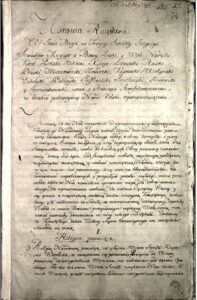
The seven-hour session was very dramatic. Members of the opposition argued, first and foremost, that the mode of working on the draft had not been compliant with the parliamentary code of conduct; and that one of the provisions included in the draft, according to which monarchs were to inherit the throne rather be elected to it, ran counter to the pacta conventa to which Stanisław August was bound by oath. The King spoke three times, indicating the urgent need for improving the present political system. Finally, when he raised his hand for the fourth time, signalling his wish to speak, the gesture was accidentally interpreted as a summons to pass the constitution proposal by acclamation – which is indeed what happened, as a result of the misunderstanding. There followed cries of “Long live the King!” and “Long live the Constitution!” Stanisław August proceeded directly to make an oath on the Government Act in front of Feliks Turski, Bishop of Kraków. There followed a mass procession to St. John’s collegiate, where a thanksgiving service was held, and “Te Deum Laudamus” sung with fanfare.
By contrast, leaders of the opposition remained in the Sejm chamber; among them was the great crown hetman Franciszek Ksawery Branicki. They resolved to launch a protest manifesto to be recorded in the books of the city of Warsaw, in keeping with the law and custom of Old Poland. However, they found the door of the city hall office closed. Thus they had been unable to undermine the legality of a certain coup d’etat, which occurred on that day with a view to establishing the Government Act as the foundation of a new political system, better suited to the challenges of its times. At night, the city demonstrated in support of previous day’s events.
***
The 3 May constitution made the work of the Sejm more effective, in that it abolished the liberum veto: the hitherto sacred right of every parliamentarian to obstruct the passing of any law simply by expressing his dissent. Henceforth, laws and decrees were to be passed by a majority vote. The constitution introduced hereditary monarchy, which prevented the state from foreign intervention, and internal anarchy in periods of interregnum. It established a collegial governing body, Straż Praw (Guard of the Laws), as a step towards improving state administration. By including the law of the cities into its body, the Constitution granted to members of the bourgeoisie many of the rights which had previously been reserved exclusively to the nobility: personal inviolability, the right to purchase land, to hold offices in the military, state administration and the Church. The interests of the bourgeois could only be represented by their plenipotentiaries. The Constitution extended the care of the law to the peasants, thus breaking with the ancient rule that the relations between the manor and the village are the nobility’s private matter.
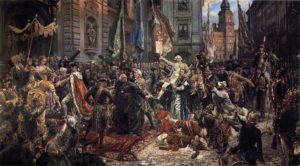
The Government Act lasted merely a year. It was overturned in the summer of 1792 by a Russian military intervention called by the conservative opposition, whose summons took the form of the Confederation of Targowica. Before this came to pass, the Act had been the object of admiration for enlightened European circles, as the second Act of this kind, preceded only by the constitution of the new United States of America, which had been passed in 1787. Although it was annihilated, the Constitution left Poles a salient message for their future: a message on how to arrive by non-violent means at a consensus on issues that are fundamental to the public good.
Author: Piotr Ugniewski

